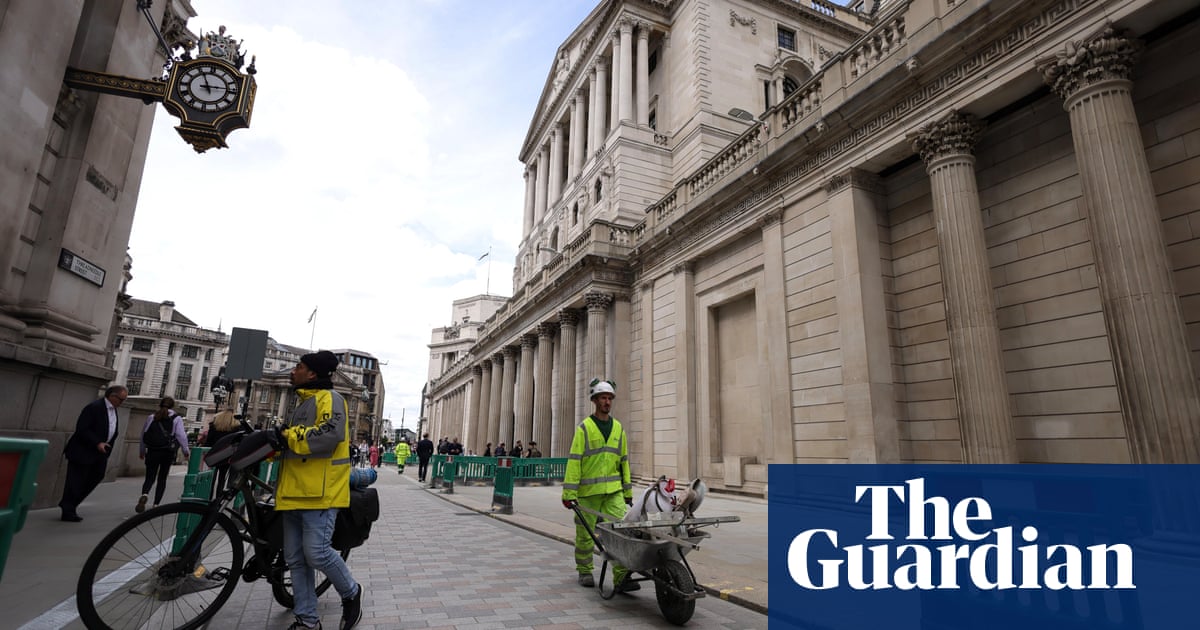The Bank of England has held interest rates at 5.25%, marking the seventh consecutive time the central bank has left the cost of borrowing unchanged.
Dashing Rishi Sunak’s hopes of a pre-election cut in the cost of borrowing, a majority of the Bank’s monetary policy committee (MPC) said they wanted to see further evidence that prices growth would remain subdued.
Financial markets expected the decision, despite a fall in inflation in May to the Bank’s 2% target.
Andrew Bailey, the Bank’s governor, said: “It’s good news that inflation has returned to our 2% target. We need to be sure that inflation will stay low and that’s why we’ve decided to hold rates at 5.25% for now.”
Bailey was among seven members of the nine-member MPC who voted to leave rates on hold. Swati Dhingra and Dave Ramsden voted for a quarter-point cut to 5%.
However, for some of those who voted to freeze rates, the decision was “finely balanced”, according to the minutes of the MPC meeting, suggesting a potential cut had been a serious consideration.
Savers will cheer the decision, but many mortgage payers and indebted small businesses will need to take out loans at historically high levels of interest.
Millions of homeowners have been forced to refinance their loans at much higher interest rates in the past 18 months, leading to a collective bill that is likely to reach £12bn by the end of the year, according to the Resolution Foundation thinktank.
Despite the fall in headline inflation to 2% in May, services inflation was 5.7%, down only slightly from 5.9% in April.
In the minutes of the MPC meeting, members said the economy had grown faster than they expected earlier this year, and was likely to continue doing so this year. Bank staff predict GDP growth of 0.5% in the second quarter of 2024, stronger than the 0.2% rate expected at the time of the last rates decision in May.
after newsletter promotion
It said some of the growth in the first quarter was accounted for by an increase in government spending, leading to a stronger bounce-back from last year’s recession.
MPC members were concerned that wages were not falling fast enough to prevent firms from putting up prices again this year. A forecast rise in energy prices in autumn could also push inflation higher.

